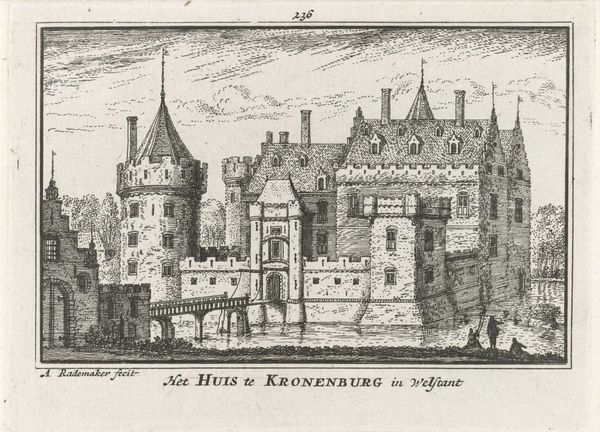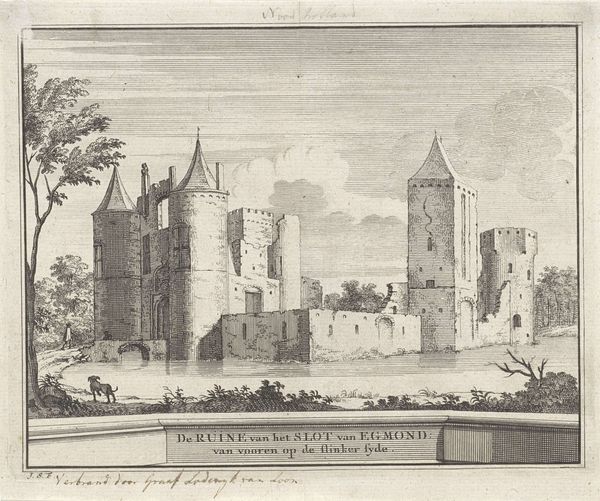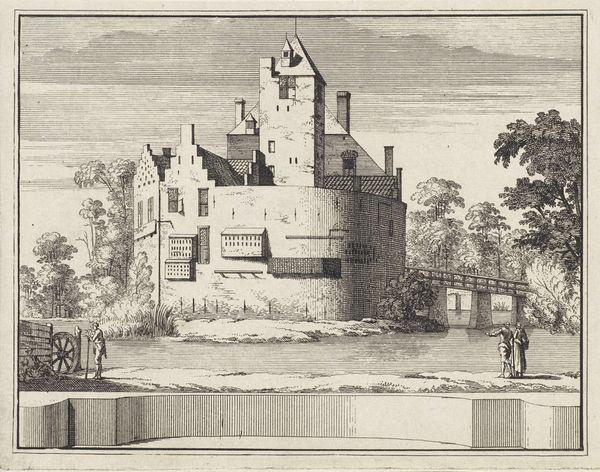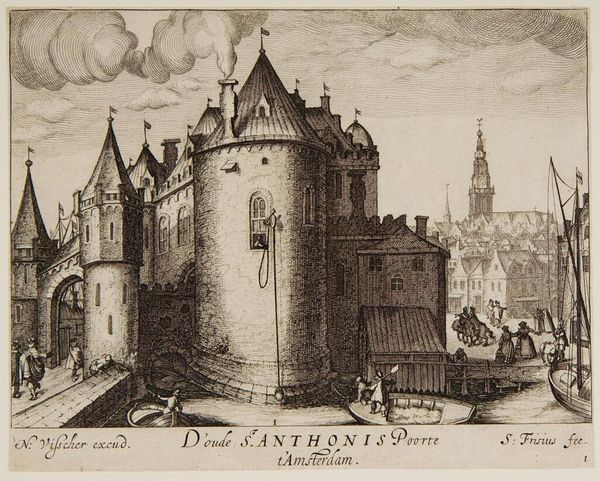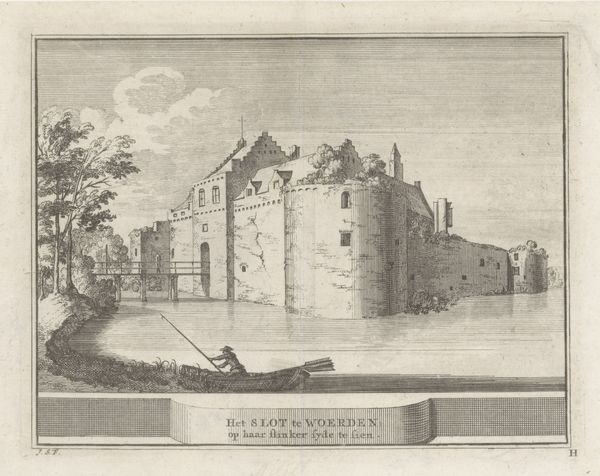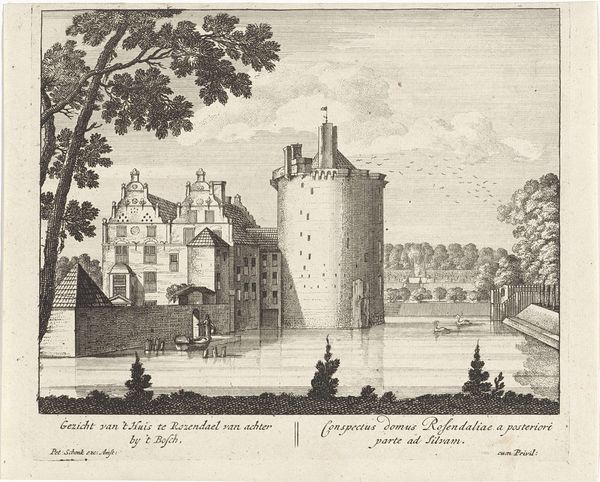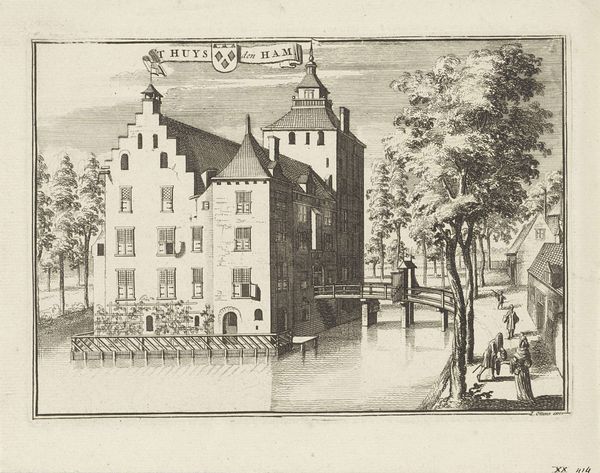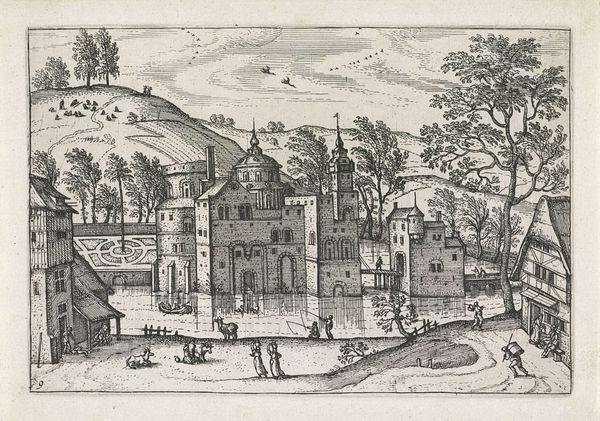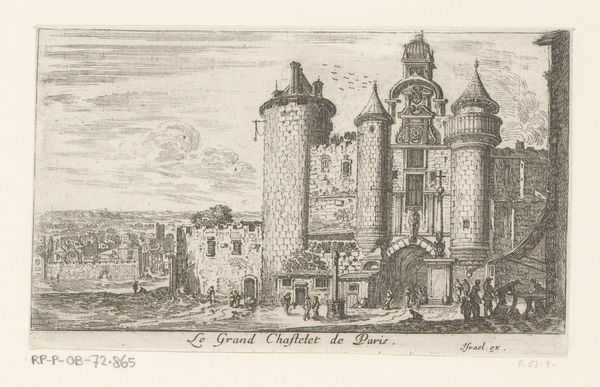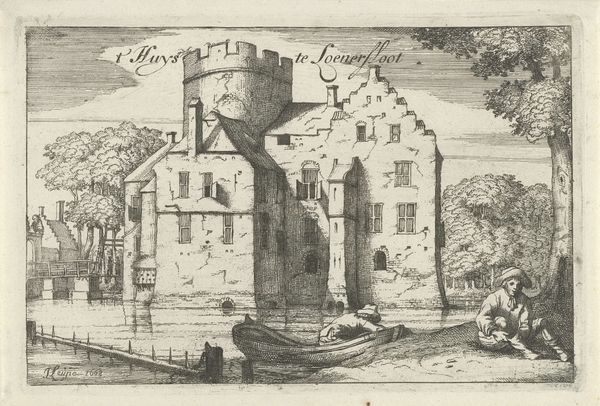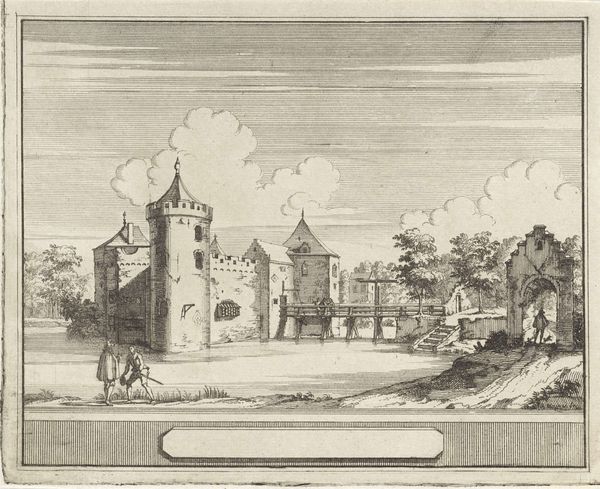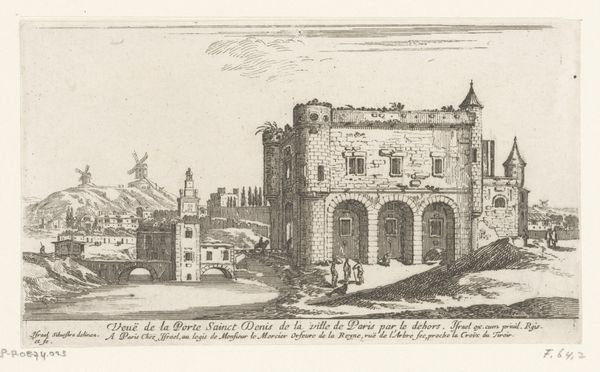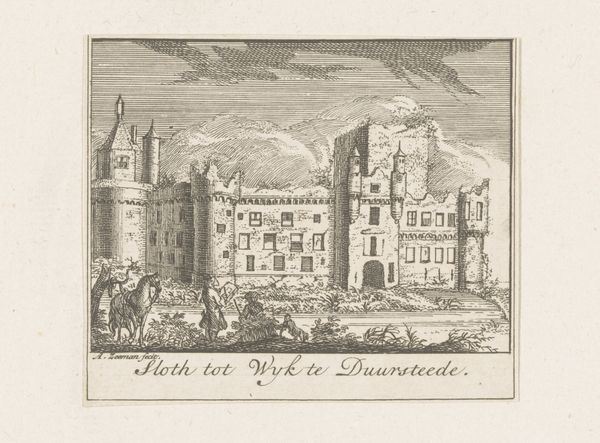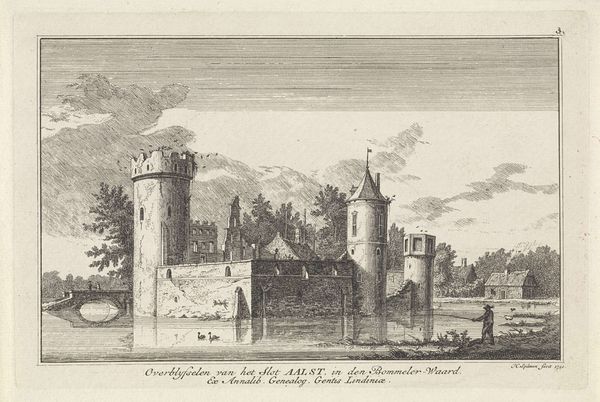
print, engraving, architecture
#
dutch-golden-age
# print
#
landscape
#
line
#
cityscape
#
engraving
#
architecture
#
realism
Dimensions: height 135 mm, width 181 mm
Copyright: Rijks Museum: Open Domain
Jacobus Schijnvoet created this print, *Gezicht op kasteel Loenersloot,* using etching, a process that democratized image-making in the 18th century. The etched lines define the architectural details of the castle and the surrounding landscape. This was achieved by coating a metal plate with wax, drawing the image with a needle, and then submerging the plate in acid. The acid bites into the exposed lines, creating grooves that hold ink. The quality of the line – thin, precise, and capable of capturing intricate detail – speaks to Schijnvoet’s skill. But more than that, the print embodies a shift in the art world, reflecting an increasingly industrialized society. Etching allowed for the mass production of images, making art more accessible, less precious. In that sense, Schijnvoet’s work is not just a picturesque view of a castle, but a product of its time. Appreciating the method is key to understanding its cultural value.
Comments
No comments
Be the first to comment and join the conversation on the ultimate creative platform.
